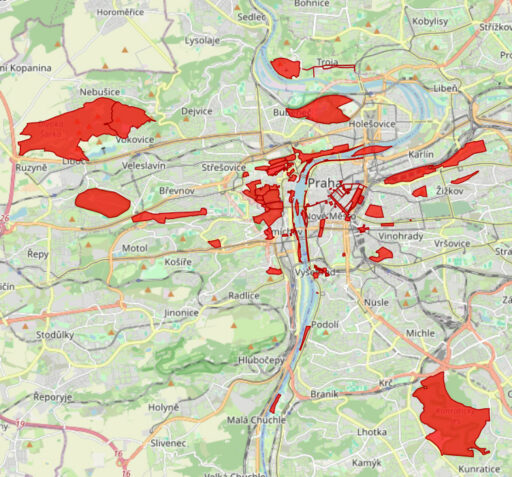Call for Applications EHRI Workshop in Poland | Holocaust Places and Spaces as Data

Challenges and Best Practices
28-30 October 2024, Łódź ,Poland | Deadline for submissions: 31 July 2024
With the growing interest in Holocaust geographies, researchers, projects and/or educators increasingly work and struggle with data representing the places and spaces of Holocaust history. We invite researchers creating and using geospatial data in the field of Holocaust studies to submit their application for the international EHRI workshop Holocaust Places and Spaces as Data: Challenges and Best Practices. The workshop aims to share experience and discuss practical challenges many projects working with spatial data encounter. At the same time, we want to reflect on broader heuristic, epistemological and ethical issues triggered by turning places into data.
The reflections on geospatial data can include methodological questions, issues with extracting data from source materials and its coding, analytical tools, workflows, possibilities of cross-referencing, standardizing, archiving, and data sharing. We explore the usage of such data in public history and the challenges of engaging students and the public through digital tools and applications. We are interested in the successes and limits of bringing Holocaust-related data into public space and their usage in locations where the Holocaust unfolded.
We would like to discuss dilemmas and challenges relating to the uses of geospatial data in Holocaust research. We ask how geodata-driven work corresponds to the recognition of the social construction of space, to inspiration coming from human geography as well as critical geography and to alternative approaches to mapping, such as deep maps. We reflect on the limits of GIS (geographic information systems) in representing complex place-making events and encounters, their memory and representations and the issues of datafying and mapping uncertainty and gaps in knowledge. We are interested in the potential and problems of translating narrative sources, such as individual testimonies, to data and maps.
The workshop is geared toward graduate, postgraduate/early career and established scholars from a variety of disciplines and will be a unique opportunity to share knowledge and experience, discuss challenges and future cooperation. We welcome proposals for full papers, hands-on sessions and work-in-progress presentations discussing sources and data, research questions and digital methodologies. The workshop language is English.
Topics of interest include but are not limited to:
- methodologies of identifying, gathering and processing data from source materials, including textual, audiovisual, and other sources
- small and big data approaches
- standards, data sharing, archiving and cross-referencing in geospatial projects
- tools spatially visualizing testimony, challenges in representing perception of space and time (open source versus proprietary)
- methods, best practices and experiences in geospatial analysis
- methodological, heuristic, epistemological and ethical challenges
Practical information
The deadline for applications is 31st of July 2024. Incomplete applications and late applications will not be considered.
Organizers will cover participants’ accommodation and travel costs (up to a limit of 300 Euros for participants from Europe and 1000 for those from the overseas).
An application package consists of:
- Paper/session abstract or a short description of participants’ interests and involvement in projects in the field of Holocaust research with creating and using geospatial data (maximum 1 page)
- Short bio (maximum 1 paragraph)
Please submit the application package in one .pdf file to: ehriworkshop@holocaustresearch.pl
Selected participants will be informed by e-mail by the 25th of August 2024.
The workshop is organized within the framework of the European Holocaust Research Infrastructure (EHRI) project, supported by the European Commission. EHRI aims to improve access to fragmented collections and to Holocaust-related data and supports diverse communities of Holocaust researchers.
It is convened by Masaryk Institute and Archives of the Czech Academy of Sciences (CZ), Wiener Holocaust Library (UK), Polish Center for Holocaust Research in cooperation with the Center for Jewish Research, University of Łódź (PL).
Image: Inaccessible places within the city of Prague. From the EHRI Geospatial Repository. The dataset contains shapefiles of 111 places where Jews were not allowed to enter due to anti-Jewish laws and ordinances.
